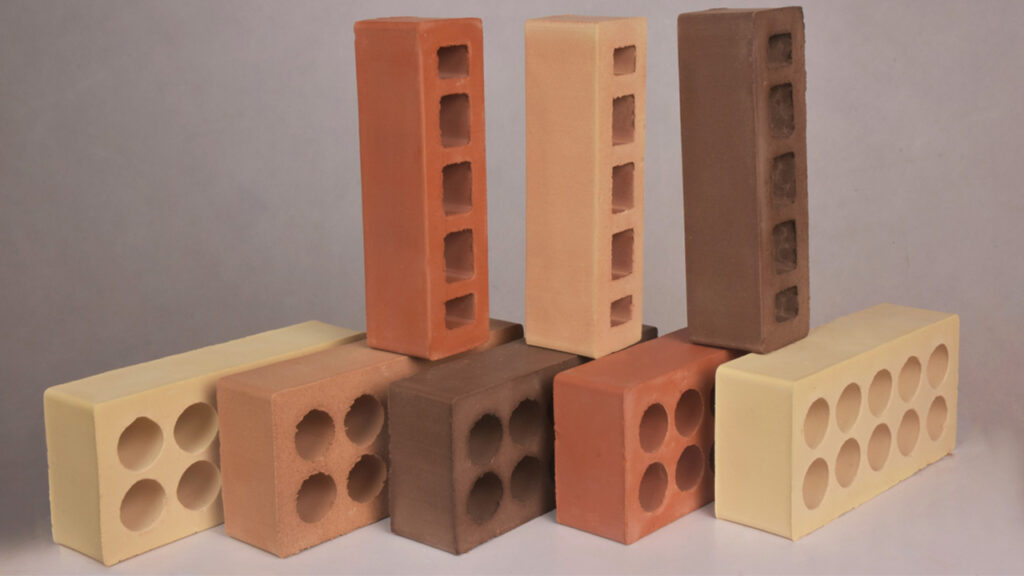No products in the cart.

Advantages of Lefton Brick Over Cement Block

Lefton brick and cement blocks are two popular choices for building materials. While both offer certain benefits, lefton brick stands out for several reasons. This article explores the advantages of lefton brick over cement blocks, focusing on aspects such as durability, aesthetics, environmental impact, and cost-efficiency.
Durability and Strength
Lefton bricks are renowned for their exceptional durability and strength. Made from high-quality clay and shale, they undergo a rigorous manufacturing process, which includes high-temperature firing. This process enhances their structural integrity, making them less prone to cracking and chipping than cement blocks. Cement blocks, while strong, can deteriorate faster due to moisture and other environmental factors.
Aesthetic Appeal
One of the standout features of lefton bricks is their aesthetic appeal. These bricks come in various colors, textures, and finishes, allowing for greater design flexibility. Lefton bricks can enhance the visual appeal of any structure, whether for a rustic, traditional look or a sleek, modern finish. Cement blocks, on the other hand, are often limited in design options and typically require additional finishing materials to achieve a desired look.

Thermal Insulation
Lefton bricks offer superior thermal insulation compared to cement blocks. The natural properties of clay provide better heat retention and regulation, which helps maintain indoor temperatures. This characteristic can lead to significant energy savings, as buildings with lefton bricks often require less heating and cooling. Cement blocks, although functional, do not offer the same level of insulation, potentially leading to higher energy costs.
Environmental Impact
The environmental benefits of Lefton bricks are noteworthy. Clay, the primary material used in Lefton bricks, is abundant and environmentally friendly. The manufacturing process for Lefton bricks is also more sustainable, as it typically involves lower energy consumption and fewer carbon emissions compared to cement production. Cement blocks are associated with higher carbon footprints due to the energy-intensive nature of cement manufacturing.
Cost-Efficiency
While the initial cost of lefton bricks may be higher than cement blocks, they offer better long-term cost efficiency. Their durability and low maintenance requirements mean fewer repairs and replacements over time. The energy savings from better thermal insulation also contribute to overall cost reduction. Despite their lower upfront cost, cement blocks may incur higher long-term expenses due to maintenance and energy inefficiency.
Moisture Resistance
Lefton bricks have superior moisture resistance, which helps prevent issues such as mold and mildew growth. Their dense structure makes them less absorbent than cement blocks, which can retain moisture and lead to structural damage over time. This moisture resistance also enhances the longevity of buildings made with lefton bricks, ensuring they remain strong and aesthetically pleasing for extended periods.
Fire Resistance
Another significant advantage of lefton bricks is their fire resistance. Clay bricks can withstand high temperatures without degrading, providing an added layer of safety in the event of a fire. Cement blocks, while fire-resistant, do not offer the same level of protection as lefton bricks, which can help prevent the spread of fire more effectively.
In conclusion, lefton bricks offer numerous advantages over cement blocks, including enhanced durability, aesthetic flexibility, thermal insulation, environmental benefits, cost efficiency, moisture resistance, and fire resistance. These benefits make lefton bricks superior for building projects, ensuring long-lasting and visually appealing structures.

FAQ:
What are the main advantages of lefton bricks over cement blocks? Lefton bricks are more durable and aesthetically appealing, provide better thermal insulation, resist moisture, and offer enhanced fire resistance compared to cement blocks.
How do lefton bricks improve thermal insulation? Their clay composition provides natural thermal insulation, maintains stable indoor temperatures, and reduces energy costs, unlike cement blocks, which may need additional insulation.
Are lefton bricks environmentally friendly? Yes, the production of lefton bricks consumes less energy and emits fewer carbon emissions than cement blocks, making them more eco-friendly.
What makes lefton bricks more durable? High-temperature firing strengthens lefton bricks, making them less prone to cracking and weathering than cement blocks.
How do lefton bricks contribute to cost efficiency? Though initially more expensive, lefton bricks require less maintenance and provide energy savings due to better insulation, reducing long-term costs.
How do lefton bricks compare to cement blocks in fire resistance? Lefton bricks withstand higher temperatures without degrading, offering better fire resistance than cement blocks.
Do lefton bricks require less maintenance? Their durability and moisture resistance mean they need fewer repairs and maintenance than cement blocks.
Are there aesthetic advantages to using lefton bricks? Yes, Lefton bricks come in various colors and textures, offering greater design flexibility and aesthetic appeal than cement blocks, which often need additional finishing materials.
What are the benefits of lefton bricks’ moisture resistance? Their dense structure prevents mold and mildew, ensuring longer-lasting structural integrity than the more absorbent cement blocks.
Can lefton bricks be used for various construction projects? Due to their durability and design flexibility, lefton bricks are versatile and suitable for residential, commercial, and industrial projects.
